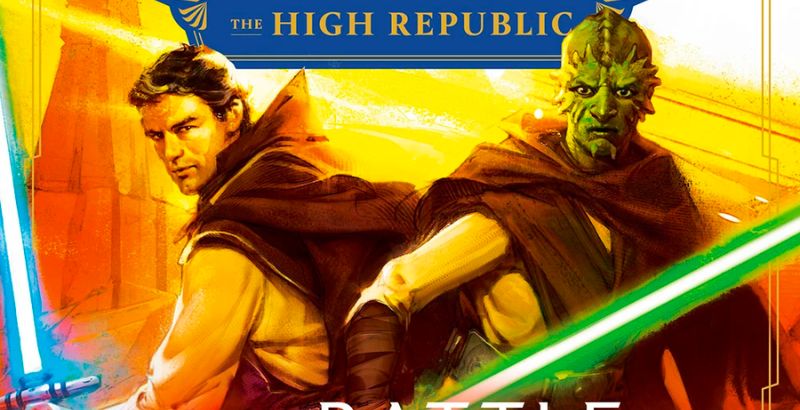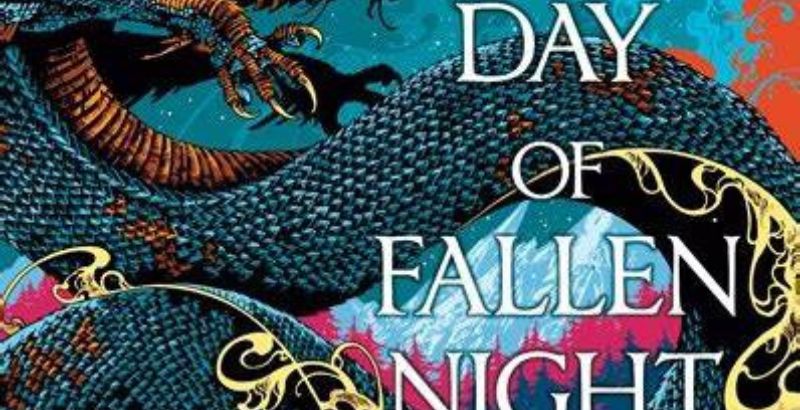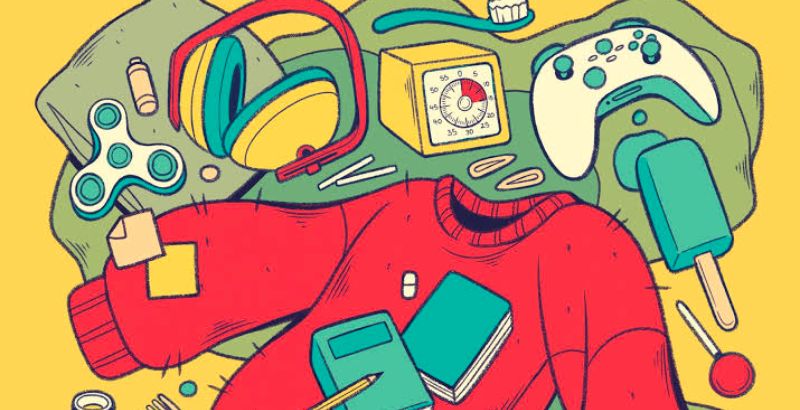
Trouble Girls is written by Julia Lynn Rubin and published through Wednesday Books. Releasing on June 1, 2021, this book has been marketed as a queer re-telling of the 1991 film Thelma and Louisa mixed with the aesthetics of the CW show Riverdale. We follow the story of two teen girls named Trixie and Lux, who are best friends. They have planned a road trip for one other and as opposed to it being a fun getaway, what ensues is a week filled with crime and passion. From the start, their characters are interesting, with Trixie being someone who comes from a troubled family and Lux being an artsy photography student. There is no time wasted seeing these characters explore their dynamics outside of each other or their high school setting.
The pacing of this novel is fast and blurring. Considering its page length is only 272 pages, it is a breeze to get through. Rubin thrusts us straight into the action. Trixie and Lux find themselves sneaking into a dive bar in the next town over where Lux indulges herself to the attention of a local college boy. However, they both get more than they bargained for when this college student sexually assaults Lux. The scene is not graphic but is tense and real, capturing the innate fear and anxiety this particular type of violence causes. Trixie bears witness to it and stabs this college man. This launches them on to their cross-country road trip escaping their actions and the law. Their road trip allows them to confront their feelings towards one another and to meet lots of interesting folks along the way. Each town stop was essentially a different chapter making this book constantly have momentum and wishing you could have Trixie and Lux stay in one place a little longer.
There are a lot of themes being explored in Trouble Girls. Rubin showcases the horrors of sexualization and rape culture. Trixie’s dialogue often feels like an info-dumb on how modern-day culture views young women as a trophy that can be collected and bragged about to others as they drive down long and narrow back roads. Rubin has Trixie utilize the internet from various cafes on their stops between towns to send out cryptic messages on forum posts to detail how she does not feel sorry about what she has done to the man who sexually assaulted Lux. Later on, we discover that the man Trixie stabbed was the son of a college dean in their town. Rubin uses Trixie’s internet savvy to explore the trenches of how social media interprets stories of sexual assault. There’s lots of solidarity amongst college girls describing how various college boys in town have assaulted them. There were also many college boys describing how their peers could never do that and that these girls were lying. It is a tale so woven into our reality that it feels real and believable. Although, there is never anymore nuance to it than the surface-level exploration of these themes. If the book was a little longer, maybe Trixie and Lux could have developed more solid ideas on how to combat and discuss what happened to Lux in their town’s bar.
Alongside this, Trixie bears all the weight and guilt of the situation. Lux, on the other hand, suffers a great deal from a lack of characterization. Her status as a victim seems to exist as a reason for Trixie to be a feminist heroine online. Alongside that, Lux is the object of Trixie’s affection and nothing more. Rubin writes Trouble Girls to have an open and honest queer relationship, and it is wonderful to witness. However, as a reader, it is sad to see Lux be reduced as a side-kick to Trixie and not as equals. While Trixie’s actions and dialogue serve to make Lux happy, Lux is (quite simply) along for the ride. The broader ideas about the consequences of power hierarchies between abusers and victims, college men, and sexual assault could be stronger if Lux’s characterization were written to the same caliber as Trixie’s.
There is one more distinct issue with the writing of Trouble Girls. Trixie frequently calls men who she would consider to be abusers, rude, or sexist “hogs.” Rubin has Trixie call them hogs because all men that are these concepts are either big, sweaty, or gross looking. For a teenage protagonist, I can understand having your main character not understand the nuances of who can be a threat to your wellbeing. However, I do not like the idea of proposing that those who wield power and could harm others “look” a certain way. On a personal note, as a victim, sexual assault is terrifying because it can happen to anyone, at any moment, regardless of physical appearances. It also feels immature to body shame and depicts potential abusers as cartoon caricatures of big, burly men. This type of rhetoric is sprinkled throughout the novel, and it was both distracting and distasteful.
Despite these criticisms, Trouble Girls is an enjoyable YA novel with a lot of momentum and spunk. Trixie is a likable protagonist who embodies a lot of the pent-up anger and disappointment many feel at the hands of a culture that still chooses to sympathize with those who commit any sexual violence. Trouble Girls delivers on its promise of a dark aesthetic through a cross-country road trip about finding yourself and attempting to take justice into your own hands.
Trouble Girls
TL;DR
Despite these criticisms, Trouble Girls is an enjoyable YA novel with a lot of momentum and spunk. Trixie is a likable protagonist who embodies a lot of the pent-up anger and disappointment many feel at the hands of a culture that still chooses to sympathize with those who commit any sexual violence. Trouble Girls delivers on its promise of a dark aesthetic through a cross-country road trip about finding yourself and attempting to take justice into your own hands.






